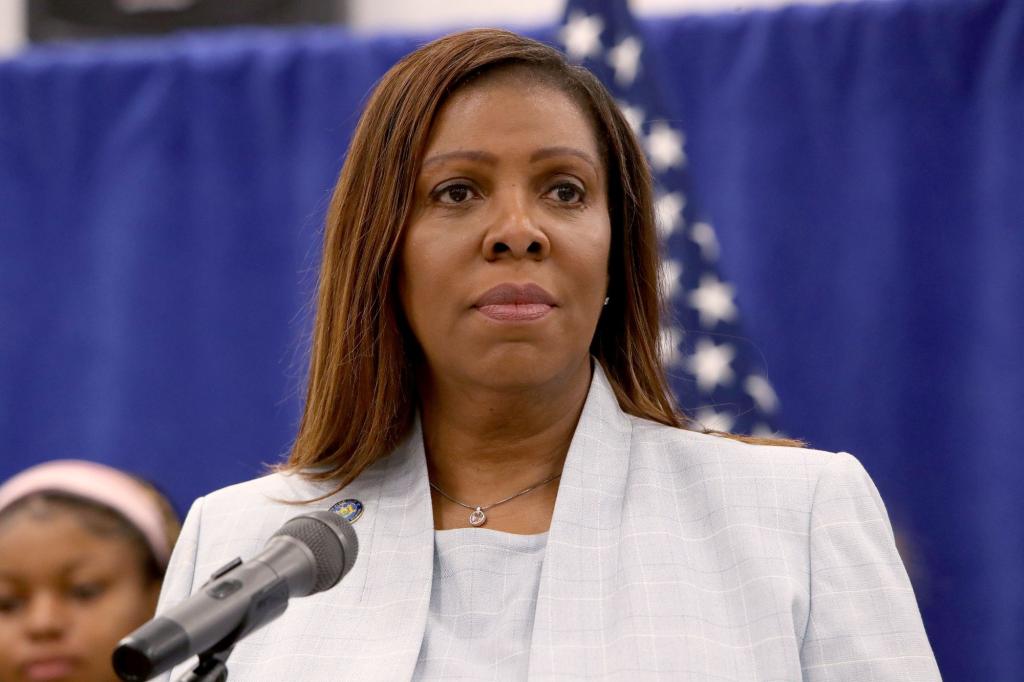While most political junkies focus on the latest twists and turns in the presidential race, a political earthquake in the Empire State has the potential to fundamentally alter how New Yorkers run their elections — and may even impact which party holds power in Washington in 2025.
Starting Sept. 22, a provision of the state Voting Rights Act will require certain local governments to seek “preclearance” from the state Attorney General or a designated court to make many election-related decisions — including some that are relatively minor.
For instance, for covered local governments, something as trifling as reassigning election districts to a poll site or changing the hours of early voting will have to be officially precleared.
The new rule upends the system of constitutionally mandated, bipartisan election administration that has served New York’s voters ably for generations.
And it will give AG Letitia James unprecedented power over election processes in some of the most hotly contested congressional districts in the nation, including those on Long Island and in the Hudson Valley.
The change stems from New York’s new Voting Rights Act, which Gov. Hochul signed in 2022 after it passed both chambers of the Legislature.
The law requires certain counties, cities, towns, villages and school districts to get the blessing of the AG or a designated court before making election-related or voting-related changes.
Jurisdictions can fall under the new rule’s shadow for multiple reasons — including arrest rates for citizens in “protected classes.”
If a poll site needs to be moved or a voter list must be culled to removed deceased residents, that jurisdiction’s Board of Elections will have to seek AG approval first.
More troubling, the law includes a provision that allows the AG to expand the list of local election board functions that will require preclearance.
Proponents of the law argue that the preclearance process will protect the civil and voting rights of New York’s minority voters.
In reality, it’s a massive power grab by the AG — and a sly attempt to subvert the state Constitution’s guarantee of bipartisan control of election boards.
Albany doesn’t get much right, but the administration of elections has long been an exception.
Elections in New York are run by bipartisan boards that give each of the two major parties equal representation.
One side watches the other, and both parties have a stake in ensuring that elections run smoothly — even in jurisdictions heavily dominated by one party or the other, like New York City.
It’s not a perfect system, and it certainly has its inefficiencies. But it successfully preserves voter confidence.
Most importantly, it’s required by our state Constitution.
The preclearance rules of the state VRA, however, undermine this constitutionally mandated system of bipartisan election administration.
Under the state VRA, the AG effectively has veto power over some of the most basic and noncontroversial decisions and functions of a local Board of Elections.
And the recently adopted procedure for local governments to seek the AG’s blessing is so complicated that it’ll leave even the most seasoned election lawyer scratching his head.
This all takes effect on Sept. 22, less than two months ahead of the 2024 general election.
Given which local governments are impacted by the preclearance requirement, it’s likely to have an effect this year — especially on key races for the House of Representatives.
The counties covered by the new mandate tend to be the largest ones. In upstate New York, Erie, Monroe, Onondaga and Albany counties are all covered. New York City and its surrounding counties (Nassau, Suffolk, Rockland and Westchester) are covered, too.
These counties contain closely contested congressional races that will likely determine if Mike Johnson or Hakeem Jeffries is speaker of the House in January 2025.
The state VRA’s preclearance requirement, and James’ new ability to micromanage local election operations, will take effect just as these already contentious House races enter their final rounds.
New Yorkers of all political parties and persuasions want elections to be run fairly, honestly and efficiently — and the state’s system of bipartisan election administration already serves voters well.
Our elections — and the public’s faith in them — will not be improved by the AG’s meddling.
Joseph T. Burns is a partner in the law firm Holtzman Vogel and a New York State-based election lawyer.
The post New law gives AG James power over NY’s closest elections appeared first on Patabook News .

